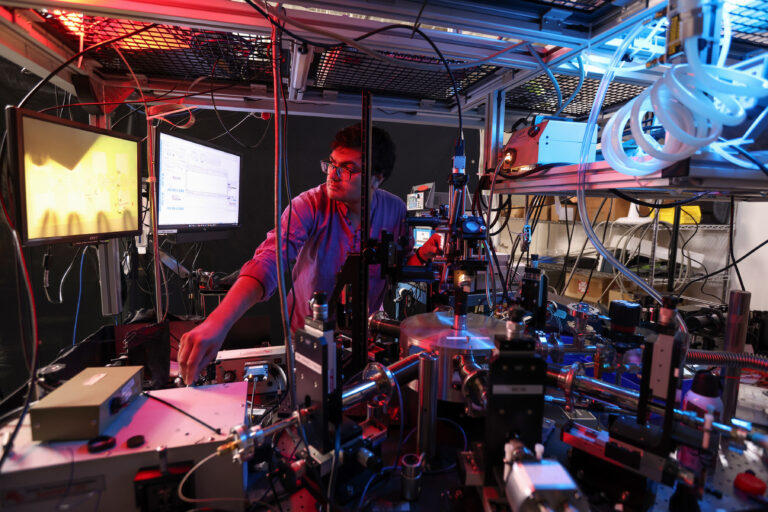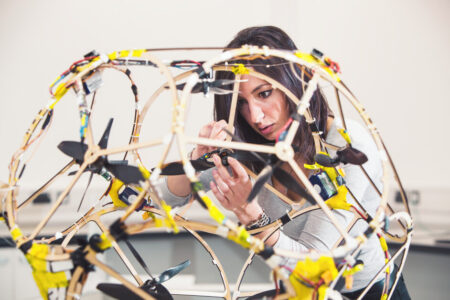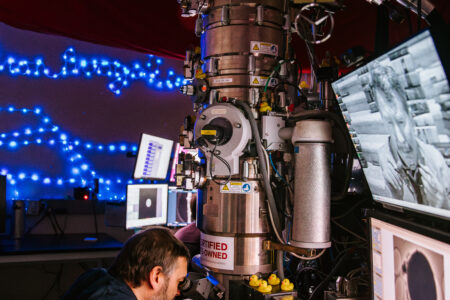
With modern engineering challenges becoming more complex by the day, the demand for highly skilled engineers has skyrocketed. According to the US Bureau of Labor Statistics, employment of industrial engineers is projected to grow 12% from 2022 to 2032. Within the same period, overall employment of civil engineers, electrical engineers, and biomedical engineers is projected to grow 5% — faster than the average for all occupations.
This growth is driven by factors such as the increasing emphasis on renewable energy, advancements in materials science, healthy aging, and the ever-expanding fields of computer science and biotechnology. Nothing can prepare professionals with the advanced knowledge and skills needed to tackle these challenges better than a graduate degree.
Beyond technical expertise, the best programmes often foster critical thinking, creativity, and strategic decision-making, making it more likely for engineers to ascend to leadership positions and command higher salaries. Masters programmes also emphasise research, ensuring graduates can contribute significantly to innovation within their industries.
To take your engineering expertise to new heights, here are three leading universities worth considering.

Columbia Engineering’s integrated research footprint stretches from Morningside Heights to the new Manhattanville campus and the Medical Centre. Source: Columbia University
Columbia University
To push the frontiers of knowledge and translate discoveries to meet the needs of society, head to New York City, where the Fu Foundation School of Engineering and Applied Science at Columbia University is based. Guided by its vision, Engineering for Humanity, the School takes advantage of its New York-based location to collaborate with Columbia’s 17 schools and industry partners. With over 270 faculty members and more than 200 research staff, it leads cross-disciplinary efforts at institutes like the Data Science Institute, the Zuckerman Mind Brain Behavior Institute, as well as the Columbia Nano Initiative, the Center for Smart Streetscapes, Learning the Earth with Artificial Intelligence and Physics (LEAP) Center, Columbia-Dream Sports AI Innovation Center, and the Precision Medicine Initiative.
Within these spaces, they are creatively contributing to the health, security, equitability, and sustainability of humanity — think of everything from robot hands that manipulate objects without relying on vision to tumour-seeking bacteria that can “paint” solid tumours with a synthetic marker. It’s all happening at Columbia Engineering, where you can gain exposure to these remarkable contributions to technological and social progress while pursuing a Master of Science that lets you engage in research that addresses major challenges in your field.
These programmes are offered across nine departments focused on Applied Physics and Applied Mathematics, Biomedical Engineering, Chemical Engineering, Civil Engineering and Engineering Mechanics, Computer Science, Earth and Environmental Engineering, Electrical Engineering, Industrial Engineering and Operations Research, and Mechanical Engineering. Each provides broad-based instruction while training you in using cutting-edge technologies. The school has also launched MS programmes in emerging areas such as Data Science, Quantum Science and Technology, and a dual MBA and Executive MS degree in collaboration with Columbia Business School.
And no matter which discipline you choose to specialise in, you’ll have a long list of career enrichment and development opportunities to seize. Its Professional Development and Leadership (PDL) programme has a track record of empowering engineers to maximise their performance and realise their potential as tomorrow’s leaders. Each session is led by faculty and industry subject matter experts.
Through dedicated Graduate Career Placement Coaches, Columbia Engineering maintains strong recruiting partnerships with global organisations, facilitates on-campus career placement, and hosts various other professional development sessions. Learn more about its dedication to purposeful innovation and leadership in engineering.

Through faculty partnerships with industry and leading institutions abroad, NUS engineering students grasp global best practices. Source: National University of Singapore
National University of Singapore
With Asia set to become the world’s largest economy and Singapore as its gateway, the country’s flagship university is set to be the base for engineering innovation that will transform the world. The Faculty of Engineering at the National University of Singapore (NUS) is one of the leading engineering schools in the world. It is also one of the university’s largest divisions, with over 6,000 undergraduates and about 3000 graduate students.
It is housed within the College of Design and Engineering, which delivers world-class programmes through 10 departments focused on Architecture, Biomedical Engineering, the Built Environment, Chemical and Biomolecular Engineering, Civil and Environmental Engineering, Electrical and Computer Engineering, Industrial Design, Industrial Systems Engineering and Management, Materials Science and Engineering, and Mechanical Engineering.
Each department is dedicated to innovation, research, and providing students with the skills and knowledge needed to excel in their respective fields. Altogether, these divisions offer 25 graduate programmes by coursework and 10 graduate programmes by research.
The first lineup was designed for university graduates aiming to advance their knowledge and careers in their chosen fields. With part-time and full-time options, the student body is a vibrant mix of working professionals and fresh graduates. Meanwhile, research-based programmes provide specialised training through independent investigation, study, and experimental work in a particular subject area. Students dive deeply into their research topics, ultimately presenting their findings in a thesis.

Graduate teaching at the Department of Engineering brings students into the heart of the latest research and developments. Source: University of Cambridge/Facebook
University of Cambridge
The Department of Engineering at the University of Cambridge stands out as one of the world’s most integrated and expansive engineering departments and is the largest department within the university. Researchers here are leading efforts in a graphene-based wearable strain sensor that can detect and broadcast silently-mouthed words, sustainable solutions for ccooling energy-hungry data centres in hot climates, “wraparound” implants that represent a new approach to treating spinal cord injuries, and more.
Joining any one of its postgraduate programmes means getting into the heart of the field’s latest research and developments. The department offers six full-time one-year taught programmes leading to an MPhil or MRes degree. For those focused on research, options include a one-year MPhil (also available part-time over two years) and a PhD programme, typically spanning three to four years (also available part-time over five to seven years). Several centres for Doctoral Training (CDTs) combine taught and research components to provide both master’s and PhD programmes.
Part-time study options are available for research degrees, offering flexibility for professionals and researchers. While most programmes are taught full-time, there is a part-time professional development course in construction engineering.
All on-campus lessons take place within the historic and picturesque city of Cambridge. This is a highly networked community for sharing and developing engineering knowledge. Just 50 miles north of London, students have easy access to the vibrant capital while maintaining a serene and inspiring environment conducive to learning and innovation.
*Some of the institutions featured in this article are commercial partners of Study International










